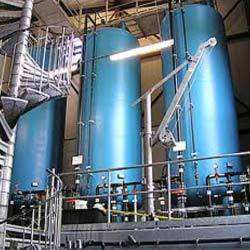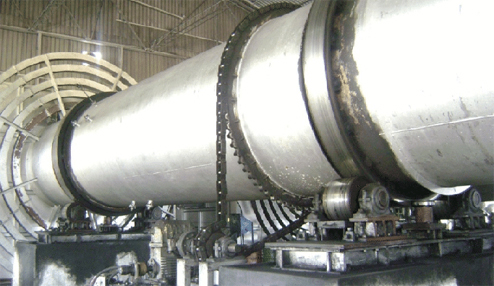Manufacturing Process
Activated carbon is produced from coconut shells, wood, coal and other carbonaceous sources. During the activation process, pure carbon is extracted from these materials Throughout the manufacturing process, samples are collected at various stages and tested for quality in our labs.
Process of Steam Activation
The process of activation is carried out in two stages. First the Wood or Coconut shell is converted into shell charcoal by carbonization process which is usually carried out in mud-pits, brick kilns and metallic portable kilns.

The coconut shell charcoal / wood charcoal is activated by reaction with steam at a temperature of 900oC - 1100oC under controlled atmosphere in a rotary kiln. The reaction between steam and charcoal takes place at the internal surface area, creating more sites for adsorption. The temperature factor, in the process of activation is very important. Below 900oC the reaction becomes too slow and is very uneconomical. Above 1100oC the reaction becomes diffusion controlled and therefore takes place on the outer surface of the charcoal resulting in loss of charcoal.
| Initially, a reaction of the carbonised material with steam occurs, known as the Water-Gas reaction :- |
|---|
| C + H20 -> CO + H2 -175,440 kJ/(kg mol) |
| This reaction being endothermic, temperature is maintained by partial burning of the CO and H2 formed:- |
| 2CO + O2 -> 2CO2 +393,790 kJ/(kg mol) 2H2 + O2 -> 2H2O +396,650 kJ/(kg mol) |
| The air is added proportionally so as to burn the gases without burning the carbon |

The qualities of our final product depend on:
- The type of raw material used
- The length of the activation and rate of reaction
- The reaction temperature
- The type and concentration of the oxidizing gases
